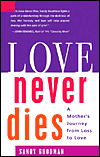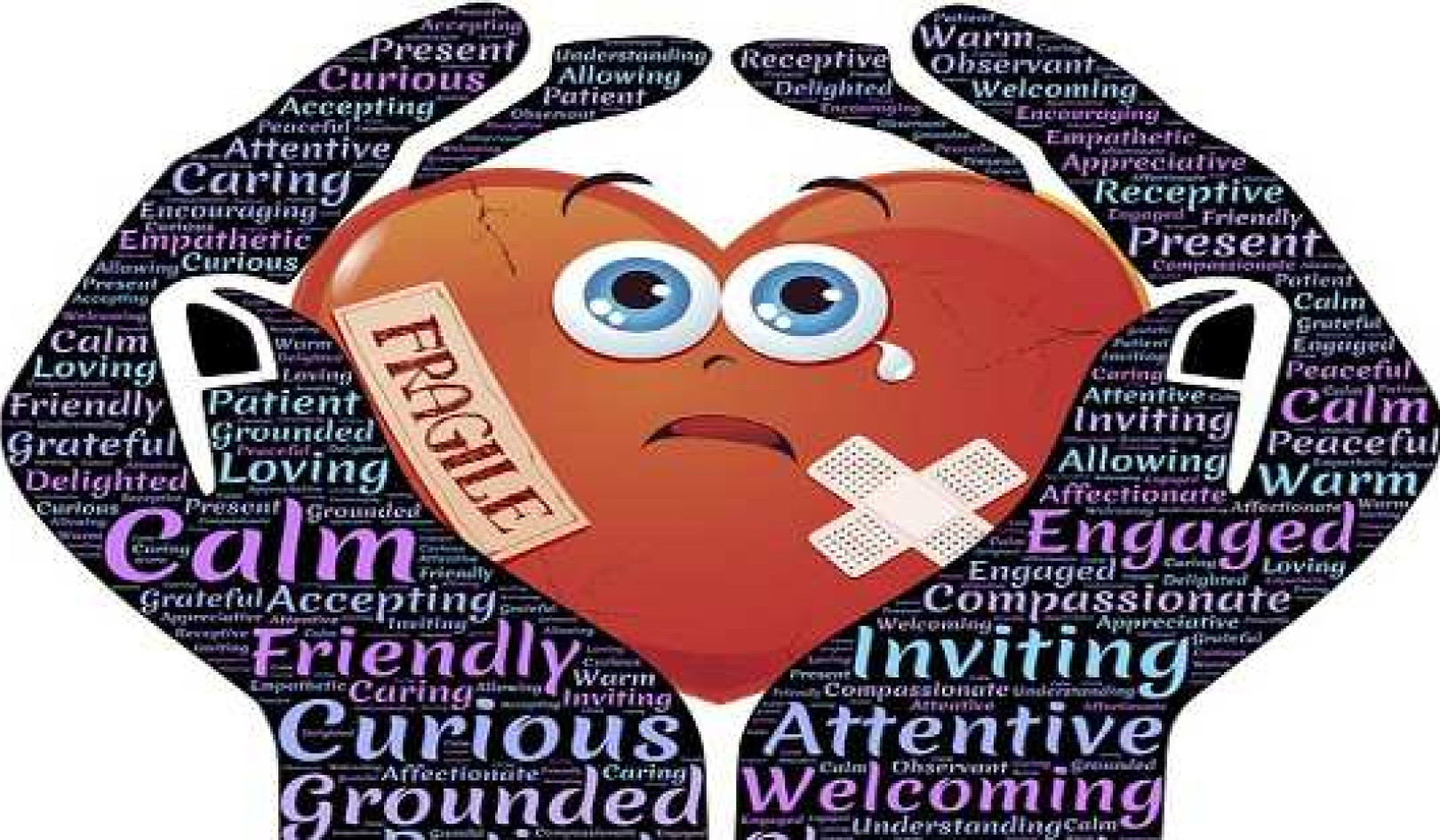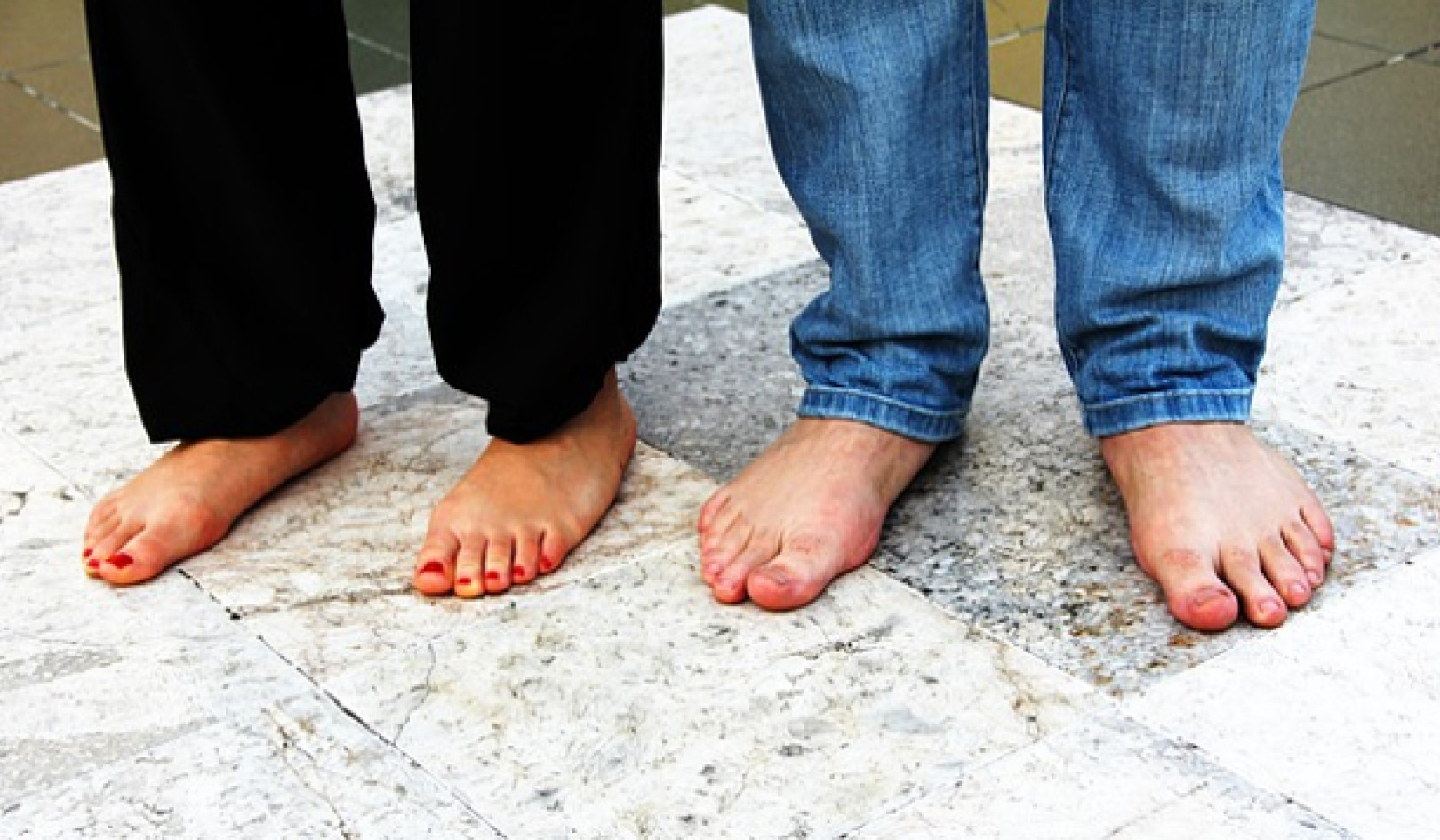There are times in my life when my heart
cries out so loud for you
That I cringe,
Wondering what others might think
And then I realize
That only I can hear the screams.
They are a part of me,
Like the blood rushing through my veins
And the breath leaving my lungs.-- Sandy, 1996
We have not done well with dying. We have denied its reality and considered it an end to life that should be avoided at all costs. We tell our children that Grandma died and went to a beautiful place called Heaven, and then we quit saying her name. We cart her clothes off to the Salvation Army, sell her house, cry (but only in secret) when someone inadvertently mentions her, and put all the pictures into storage. Instead of seeing death as the next stage of life and exploring the possibilities of such a belief, we choose to let fear keep us ignorant.
There are numerous presumptions about death and loss floating around in our society that need to be grounded. These fallacies about grief, adages meant to comfort, and suppositions passed down from one generation to the next, often do more harm than good. Those of us who have met death in person have a responsibility to introduce her to others and to share the reality of the emotional roller coaster she places us on.
Dr. Elisabeth Kubler-Ross has been credited with defining the five stages of grief as: Denial, Anger, Bargaining, Depression, and Acceptance. We've heard it from experts (who should know better) and from our well-meaning supporters. Unfortunately, what we've heard is wrong.
The doctor explained the concept in her landmark book, On Death and Dying, as the five steps an individual might move through upon learning of their terminal illness. She offered the stages when she wrote: "In the following pages is an attempt to summarize what we have learned from our dying patients in terms of coping mechanisms at the time of a terminal illness." During the 31 years since Dr. Kubler-Ross penned her now classic text, readers have somehow misconstrued the material and identified it as "The Five Stages of Grief." This was a grave (no pun) error on our part, but a superb illustration of our need to place death and dying in a neat little box that can be put away on a shelf and forgotten.
Reexamining my own experiences of grief, I can distinguish four areas I moved through to get from where I was to where I am. From the minute I comprehended the doctor's words and knew that my son was dead, until almost exactly six months later, I was numb. If you can imagine being emotionally anesthetized, that is the feeling . . . or lack of feeling. From that point until nearly two years later, I lived in a state of unyielding pain. The only thing that alleviated the pain was my hope that I could find proof of Jason's continued existence. I began searching for answers and used that search as a coping mechanism. As that search yielded results, and I changed my perception of both dying and living, I was able to start reinvesting in life and stop looking for shortcuts and hiding places. Therefore, if I were asked to list the phases I went through since Jason died, I would have to say:
- numbness
- unrelenting pain
- searching
- reinvestment
I am not implying that everyone could, should, or would take these same steps. There are many paths to choose from and a million forks in each path. No two people hurt exactly the same, for the same reasons, or for the same length of time. The pain of grief is as individual as a snowflake, and created minute by minute depending on where the griever is focused. The idea that there are specific steps to go through, in a defined sequence and for a definitive period of time, creates undue expectations not only for the griever, but also for their loved ones who anxiously await their "recovery."
... which brings up another fallacy. How many times have you or someone you've known asked, "Shouldn't they be back to normal by now?" Folks, we do not recover from the death of a loved one. Grief is not a disease. We do not "get well" from it. We begin at one point in our life, we go through what we need to go through, and we end at a different point in our life. We do not go back to where we started. Grief is a normal process that we go through when someone we love dies. We need to stop trying to make it abnormal and realize that each of us is going to confront it sooner or later.
My award for the most irrational platitude goes to whoever said, "Time heals all wounds." If I had my leg amputated tomorrow and I just sat and waited, would I stop wanting it a few months down the road? If you woke up tomorrow morning and found you were blind and you decided to go wait it out in the Caribbean, would you be feeling "back to your old self" in a year or two? Taking it further, would your co-workers expect you to be "over it" before the holiday celebrations began? Time heals nothing. Let me amend that. Time by itself heals nothing. Time is a bandage, designed to protect. It does not heal. Grief work begins on the inside and takes an enormous amount of energy and self-exploration. Even with tremendous support, the wound from a profound loss will remain as a scar that forever changes the bearer.
At a recent seminar in our community, a handout estimated that it takes approximately three to seven years after a loss (depending on the specific circumstances) for a bereaved person to reinvest in life. That is not three to seven years of hiding the hurt, stuffing the anger, and ignoring the guilt. That is three to seven years of confronting the numerous emotions that flood the senses before finally being able to embrace the loss and move through it.
When a loss is significant, we do not return to "our old selves." However, we should (and I despise "shoulds") find a way to be comfortable with our new self. I can remember a neighbor of ours coming to our house on the day that Jason died. He informed us that we would survive, and that he had survived the loss of two sons. He told us we would feel like we had basketballs lodged in our chests, and that although the basketballs would shrink in size over time, they would always be there. We have learned to feel comfortable with those basketballs right where they are. Said in total honesty, and meant to prepare us for what was ahead, those simple words stay firmly in my memory.
Others will expect the "old you" back. They will avoid mentioning your loss, they will suggest that you need to "get out and do something," and they will tell you it is time to get on with your life. It is the only way they know how to react. Many bereaved parents have told me that they've learned who their true friends are since losing their child. We become angry and distance ourselves from one friend after another.
We alienate ourselves from family members and say, "They don't care about me," And we quit. We quit family, we quit friends, we quit our jobs, and some of us quit life. It takes effort to share our pain with others. It takes effort to explain what we are feeling, when we are feeling it, and why we need others' support. It is much easier to simply end the relationship when it stops working and blame it all on their insensitivity. I say that's a cop-out. We need to be responsible. We cannot expect others to know our feelings if we guard them like treasures. Unfortunately, at the time I needed to share what I was feeling, I myself was critically lacking in knowledge of the entire grief process.
Many have asked me how they can help. What should they say? What is taboo? First of all, it is critical that you realize there is nothing, absolutely no thing that you or anyone can say to a parent who has lost a child that will make the pain go away. The pain is necessary. What others can do is show support by listening, listening again, and listening some more. There are also things to know, to say, to not say, and to do that will give a bereaved parent a sense of being understood. The following are common issues that are "normal" in the grieving process:
- fatigue
- memory loss
- daydreaming
- agitation
- inability to focus
- inability to finish tasks
- excessive sighing
- appearance of "doing better" and then slipping back
- tension
- magical thinking ("he will be back")
- suicidal thoughts
- crying at odd times
- blaming others
- irrational anger
- intense need to mention the child and what has happened
- depression
- guilt, shame, and anger
- intolerance of others' less significant problems
- lack of empathy
When you greet a parent whose child has died, instead of the usual "How are you?" (that we all know means "I don't really want to know but what else should I say?"), change it to "How are you really doing since _____ died?" We bereaved parents have an extreme desire to know that you remember that our child is dead. We want others to comprehend the magnitude of such a traumatic event. We want to hear our child's name over and over and over again. We want our bizarre behavior, our mood swings, and our forgetfulness to be pardoned. We think we're allowed, for as long as it takes.
We want to be able to talk about our child. We want to share memories of the time before their death and of the death itself, without someone changing the subject. Share stories with us about our children; tell us what you remember. And please share the happy memories. We want to be able to laugh without feeling guilty. Laughter, like tears, is wonderful healing energy.
We want acknowledgments on our child's birthday and death date, and we want to receive them forever. Don't mistakenly assume that the age of the child determines the impact of the loss. A child lost at zero days old is just as valuable to that mom and dad as a child who is sixty. Pain is pain.
Losing a child is not contagious. Don't avoid us. Don't be afraid to touch us; it can often be more comforting than words.
Don't ask us when we're going to be "over it" or how long you have to wait. We will never be who we were before. We have started over.
Don't try to find some reason for our child's death. There is no reason good enough.
Don't ask us how we feel if you don't want to hear, and please don't tell us you know how we feel. Unless we've told you, you don't know.
Losing a child has transformed me. I am not the same person I was four years ago. Before Jason's death, I had no idea who I was or why I was here. I had difficulty surviving a stressful day, let alone enduring the unthinkable. I existed, but I did not live. I had very little compassion and judged everyone and every situation as either good or bad. All of this has changed and will continue to change as I walk, and sometimes crawl, along this path I've chosen.
Do not misunderstand. I am certainly not grateful for my son's dying. I would give anything to turn back time and keep Jason home that night. But ... my gratitude is immense for the well-marked trail I was led to and the light that has always appeared when blackness fell down around me.
You know, it's why we take a body . . . so that we can feel. If we'd all remember why we're here and especially remember we are just here for the blink of an eye, we'd hurt a lot less. But if everyone hurt a lot less, no one would need anyone else and the whole thing would be pointless. Go figure.
As far as Mom keeping me home that night, I was on my way out long before that day. I didn't really know it at the time, but looking back I can remember how easy it was for me to sign up for the Navy and how relaxed I felt. Mom remembers. I just signed up. Signed up for something I had no desire to do, didn't look back, was relaxed all the way through and even on the day before leaving. That wasn't me. If I had really felt like I was leaving the next day for months of push-ups, running, and "yes sir-ing," I would have been a total jerk to everyone. Instead, I was totally cool. When I walked away from my house and up the street that night, I felt like I was at the end of a long vacation. I'd had a great time, learned a lot of new things, and made some incredible friends. But I was tired and ready to go home.
So forget about your would haves, could haves, and should haves. When we're done doing what we go there to do, we're done. It's over whether the fat lady has sung or not.
Oh, one more thing. The light that Mom mentioned always appearing when she needed it? It was her own. We create what we need. Always. Remember that.

This article was excerpted from the book:
Love Never Dies
by Sandy Goodman.
Reprinted with permission of the publisher, Jodere Group, Inc. ©2001. www.jodere.com
Info/Order this book.
 About the Author
About the Author
SANDY GOODMAN is the mother of three sons, including twins, Jason and Josh. Jason died of electrocution at the age of 18. His death started Sandy on a path of spiritual exploration through her grief. Sandy is now the founder, chapter leader and newsletter editor of the Wind River Chapter of The Compassionate Friends where she and her husband of 28 years live in central Wyoming. Visit her website at http://www.LoveNeverDies.net


























